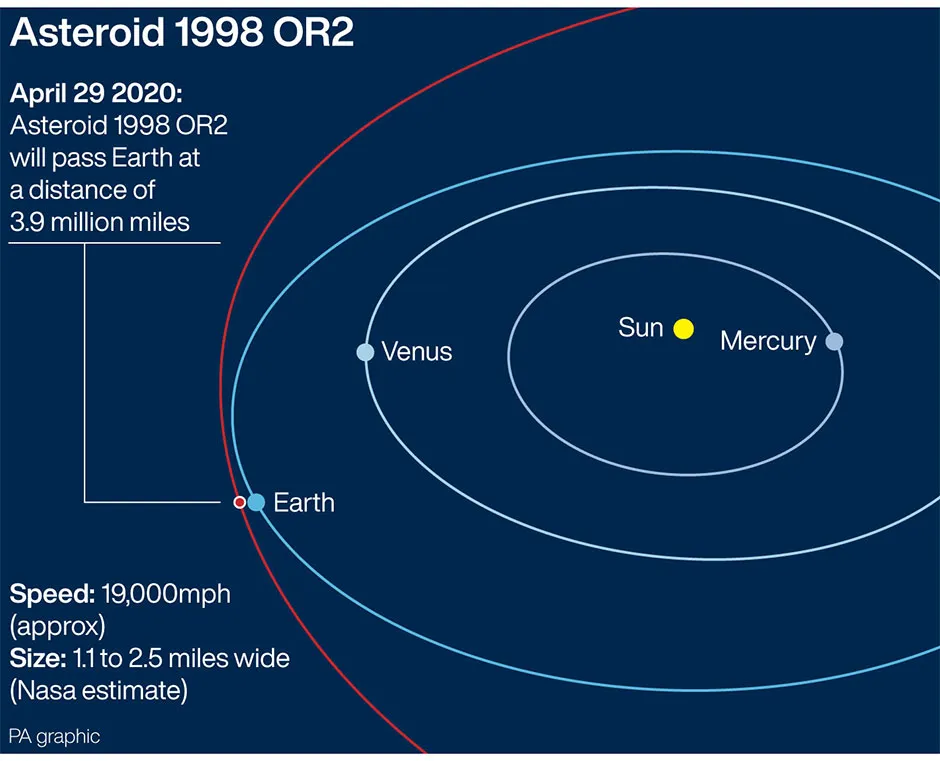An asteroid more than a kilometre wide is set to make a pass by Earth on Wednesday, although scientists insist it poses no danger.
Known as (52768) 1998 OR2, the asteroid will come to about 6.2 million kilometres away – 16 times further than the distance to the Moon – when it makes its closest approach.
The Arecibo Observatory in Puerto Rico has been tracking the 1.5 kilometre-wide space rock as it edges nearer, after NASA first spotted it in 1998.
Read more about asteroids:
Scientists have joked that the latest image of the asteroid look like it is wearing a mask due to dust and debris passing around it.
“The small-scale topographic features such as hills and ridges on one end of asteroid 1998 OR2 are fascinating scientifically,” said Dr Anne Virkki, head of Planetary Radar at the observatory.
“But since we are all thinking about COVID-19 these features make it look like 1998 OR2 remembered to wear a mask.”

The asteroid is classed as a PHO (potentially hazardous object) because it is bigger than 140 metres and will come within 7.5 million kilometres of Earth’s orbit, but no known PHO poses an immediate danger to the planet. Nevertheless, scientists continue to keep an eye on the asteroid to see how it will move beyond 2020.
“The radar measurements allow us to know more precisely where the asteroid will be in the future, including its future close approaches to Earth,” explained Flaviane Venditti, a research scientist at the observatory.
“In 2079, asteroid 1998 OR2 will pass Earth about 3.5 times closer than it will this year, so it is important to know its orbit precisely.”
The team started observations on 13 April and will continue to collect data until 23 April, when the asteroid will no longer be visible from the facility.
“Although this asteroid is not projected to impact Earth, it is important to understand the characteristics of these types of objects to improve impact-risk mitigation technologies,” Dr Virkki added.
Reader Q&A: What is the chance of an asteroid hitting Earth?
Asked by: Richard Green, Peterborough
There are probably several million asteroids with the potential for smashing into planet Earth. But very large asteroids, which would have catastrophic consequences if they hit us, are thankfully very rare. Astronomers estimate that one of these monster asteroids (like the one that wiped out the dinosaurs) should fall to Earth once every 100 million years or so.
An object about 100m across should arrive every 1,000 years, although thousands of tiny meteoroids land on Earth each day. However, most go unnoticed because they fall in unpopulated areas or into the sea. The chances of you being killed by an asteroid are very small indeed – must smaller than the risks you take driving a car or crossing the road.
Read more:
